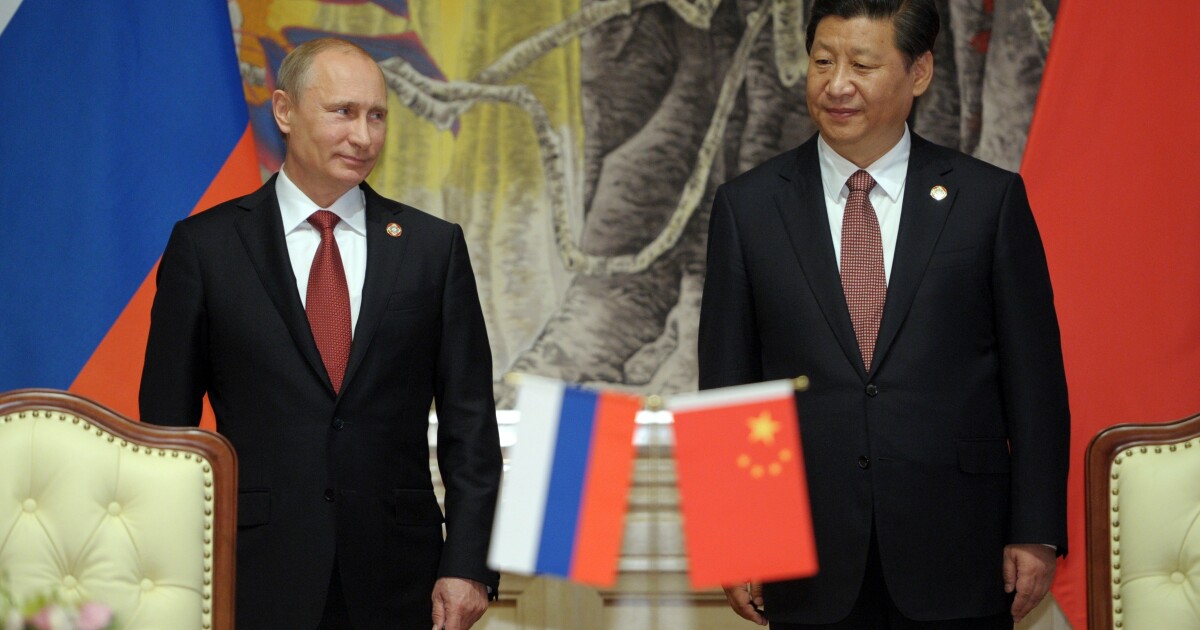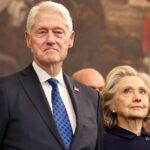

The U.S. military is working “furiously” to rewrite its nuclear deterrence theory to deal with threats from China and Russia better.
Strategic Command chief Navy Adm. Chas Richard said the U.S. threats are “unprecedented in this nation’s history” during Thursday’s Space and Missile Defense Symposium in Huntsville, Alabama, adding, “We have never faced two peer nuclear-capable opponents at the same time, who have to be deterred differently,” according to Defense One.
This spring, as Russia advanced in Ukraine, Richard said he provided an assessment on what it would take to avoid nuclear war, but China has further complicated that threat. Beijing, in recent weeks, has heightened tensions in the region following Speaker Nancy Pelosi’s trip to Taiwan, which Beijing said was a violation of their agreements, though the Biden administration maintained that the trip did not represent a change in policy.
EXPLOSIONS ROCK RUSSIAN AIRBASE IN CRIMEA
“Even our operational deterrence expertise is just not what it was at the end of the Cold War. So we have to reinvigorate this intellectual effort. And we can start by rewriting deterrence theory, I’ll tell you we’re furiously doing that out at STRATCOM,” Richard said. “We’ve got some better two-party stuff that’s actually working quite well in the current crisis that is radically different … Non-linearity, linkages, chaotic behavior, inability to predict — all attributes that just don’t show up in classic deterrence theory.”
Officials have also sought to move past the traditional deterrence theory of “mutually assured destruction,” which posits that should any country deploy a nuclear weapon, it would result in a retaliatory strike that would result in the destruction of both sides.
That calculation has been tested recently as Russian President Vladimir Putin suggested that it could use a smaller nuclear weapon in Ukraine under the belief that other nuclear powers would not respond with a retaliatory nuclear strike.
“Moscow is using both implicit and explicit nuclear coercion,” Richard said. “They’re trying to exploit a perceived deterrence gap, a threshold below which they mistakenly believe they may be able to employ nuclear weapons.”
Should this occur, U.N. Secretary-General Antonio Guterres said just days ago, “There is probably no U.N. able to respond anymore … We might all not be here anymore.” The Russian Foreign Ministry, also earlier this week, announced a temporary withdrawal from the Measures for the Further Reduction and Limitation of Strategic Offensive Arms, commonly known as the New START treaty, which limits nuclear arms.
CLICK HERE TO READ MORE FROM THE WASHINGTON EXAMINER
“Russia and the PRC have the ability to unilaterally, whenever they decide, they can escalate to any level of violence in any domain. They can do it worldwide and they can do it with any instrument of national power. We’re just not used to dealing with competitions and confrontations like that,” Richard said.







